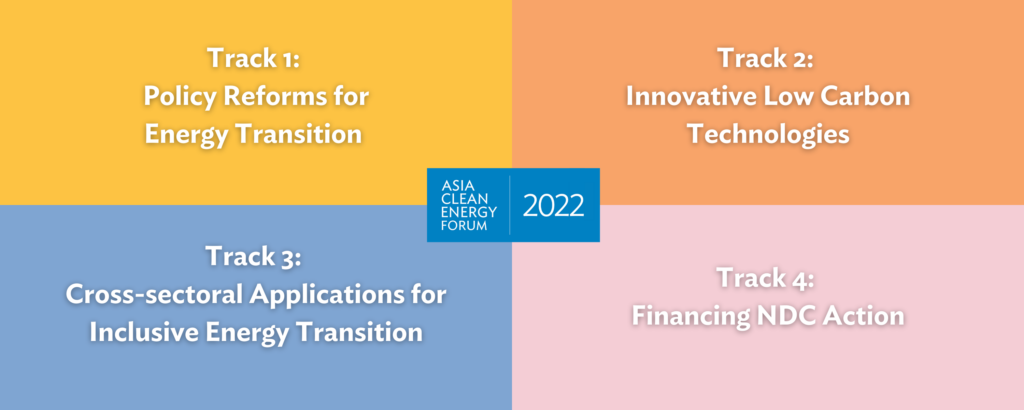At the 26th Conference of the Parties (COP26) in November 2021, nearly 200 nations signed the Glasgow Climate Pact, which calls for accelerated action to keep the 1.5°C target within reach. The climate pact calls for immediate and committed action to phase down coal, stop and reverse deforestation, accelerate switching to electric vehicles, and reduce emissions. To fulfill the global climate goals, countries and corporations have committed to achieve net-zero emissions by mid-century, and nations have committed to more ambitious targets in their Nationally Determined Contributions (NDCs).
The clean energy transition is fundamental, not only to reach the net-zero targets by mid-century and deliver the NDCs, but also to attaining the Sustainable Development Goals (SDGs). An inclusive transition can unlock multi-sectoral benefits of clean energy— supporting growing economies and creating high value jobs, reinforcing climate mitigation and adaptation efforts, and extending access to more than 770 million people without electricity globally, among others. A clean energy transition empowers people and communities, making a low-carbon and resilient future a reality.
However, each country must first overcome distinct economic and development challenges in order to fast-track its transition. These challenges are often intensified by climate impacts, and other unforeseeable occurrences, such as the coronavirus pandemic. Adjustment of traditional energy structures, both infrastructure and institutional systems, would be necessary to adopt innovative solutions and make way for the desired energy transition to happen. Aligning financing flows with the Paris Agreement and ensuring that these are channeled directly to country-driven climate and energy transition actions will deliver results.
ACEF 2022 gathered the Asia clean energy community once again—for the 17th time since its inception in 2006—to share and explore both proven and new ideas to accelerate the low-carbon energy transition in Asia and the Pacific. The discussions and agreements reached at ACEF 2022 helped to operationalize ADB’s 2021 Energy Policy, which aims to promote a low-carbon transition in the region while supporting universal access to reliable and affordable energy services. It is in line with ADB’s Strategy 2030 of creating a prosperous, inclusive, resilient, and sustainable Asia and the Pacific, while eradicating extreme poverty.
Like the past two years, ACEF 2022 was conducted virtually during 14 – 17 June 2022, with two, 90-minute sessions during the day, and partner-hosted Side Events in the evenings.
ACEF 2022 Sessions
ACEF 2022 is organized into 28-30 sessions featuring four thematic track sessions, deep-dive workshops, regional sessions, spotlight sessions, and plenary sessions. Specific topics and speakers were identified from a call for abstracts that released in April 2022. Notable speakers from the ADB and its partners were invited to the plenary sessions to discuss pivotal topics on the energy transition. ACEF 2022 also featured side events independently organized by clean energy organizations in the evenings on their respective virtual platforms.
Each day, there were two 90-minute slots – the morning slot 10:30 AM – 12:00 NN, and the afternoon slot 2:00 PM – 3:30 PM (Manila Time, GMT+8); side events were scheduled in the evening.
Thematic Track Sessions
The ACEF 2022 thematic tracks are anchored on 3 main pillars:
- Policy reforms
- Innovative low-carbon technologies business models and Paris-aligned financing
- Integrated approaches for cross-sectoral benefits
Regional Sessions
ADB’s regional departments shared their experiences and lessons learned in developing and implementing projects and programs to support the ADB DMCs’ clean energy transition.
Plenary Sessions
The plenary sessions opened and concluded ACEF 2022. They provided high-level perspectives on key issues and opportunities in the clean energy transition.
The opening plenary highlighted the key role of energy transition in attaining the climate targets in Asia and the Pacific and identify challenges and gaps to achieving them. It discussed the NDC and net-zero commitments of DMCs and present a brief overview of the status of these commitments to provide a snapshot of where we are. The opening plenary set the tone for ACEF 2022 by identifying the critical issues and gaps, and potential integrated solutions in accelerating the energy transition.
Closing Plenary – Integrated Energy Action Agenda to a Low-Carbon Future
The closing plenary highlighted the innovative and integrated approaches, in terms of policy reform, technology deployment, Paris-aligned financing modalities, and multisectoral action that can accelerate the energy transition in Asia and the Pacific. It featured best cases, key programs, partnerships and collaborative actions that have been successfully implemented and identify areas where concerted actions are still needed to speed up the energy transition towards the realization of a low-carbon future.
Deep Dive Workshops
Deep Dive Workshops (DDW) are in depth discussions of concepts, ideas, and technologies in a more interactive format among participants and speakers. DDWs were organized by ADB and its partner organizations.
Spotlight Sessions
These sessions highlighted special topics relevant to the clean energy transition. These were organized by ADB and ACEF’s co-organizers and donors.
Side Events
Side events were held in the evenings of ACEF week. They are independently organized by clean energy organizations and hosted in their own virtual platforms. Side events featured topics, programs, and issues prioritized by their host organizations.



You must be logged in to post a comment.